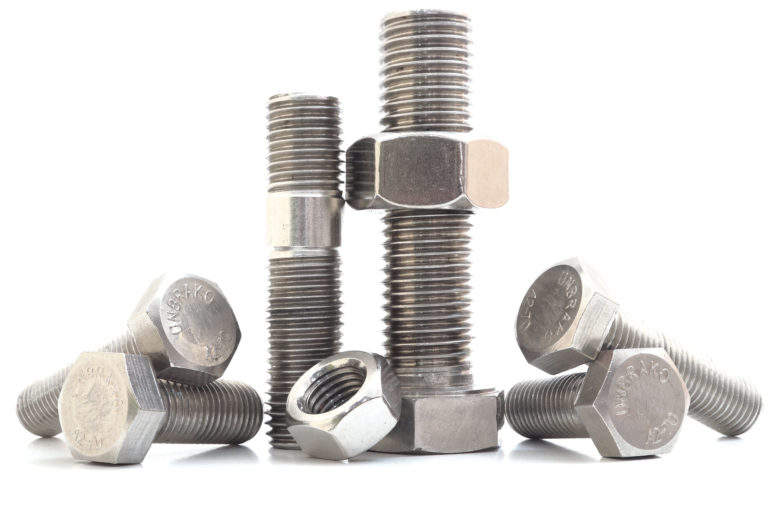DC Engineering is the most well-known and respected company in the manufacturing and supply of Nickel Fasteners of all types, including Nickel 200/201 Fasteners. For our global clientele, we stock a wide range of sizes, shapes, thicknesses, and dimensions.
Specification of Nickel Alloy Fasteners
Nickel can be alloyed with almost any other metal to create extremely durable alloys. Nickel alloy fasteners are highly sought after due to their superior corrosion resistance. Nickel alloy bolts (nickel alloy fasteners) are typically used, however, in contexts where the material's resistance to high temperatures is essential. Common steel alloys corrode on oxidation, in contrast to nickel alloy threaded rods. Nickel alloy bolts are not only resistant to corrosion caused by oxidation, but also to corrosion caused by some reducing agents. Nickel 200 fasteners and other commercially available products have excellent resistance to corrosion in caustic alkalis and can be used at temperatures below 600 degrees Fahrenheit. Hex bolts made from UNS N02200 are resistant to dry fluorine and hydroxides as well. The carbon content of Nickel 201 screws is lower than that of Nickel 200 screws. Both are made from 99.9% pure nickel alloys available commercially. This alloy's hardness is diminished because of its low carbon content. UNS N02201 studs are also known to prevent embrittlement due to intergranular carbon by lowering the carbon content of the material. Nickel alloy studs are resistant to the intergranular corrosion that destroys regular steel at temperatures above 315°C. Bolts, nuts, screws, washers, and studs are all examples of common types of fasteners made from nickel 200. Bolts are typically made to ASTM B160 specifications, nuts to ASTM B164, and screws to ASTM B166. The dimensions, tolerances, and chemical make-up of nickel 200 fasteners are all laid out in detail. Nickel 200 screws and bolts are commonly used in places where resistance to acids and alkalis is essential. They are also used in heat exchangers, reactors, and electrical components because of their resilience to high temperatures. Because of its high conductivity to electricity, Nickel 200 is frequently used as a fastener material in electronic and electrical setups. Consider the needs of your application and talk to suppliers or manufacturers of Nickel 200 fasteners to make sure you choose the right fastener types, sizes, and specifications.






